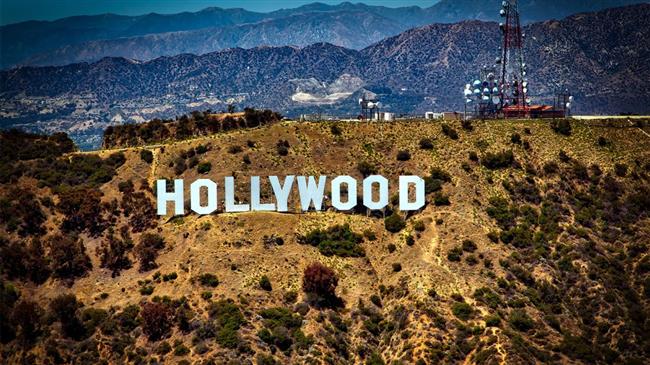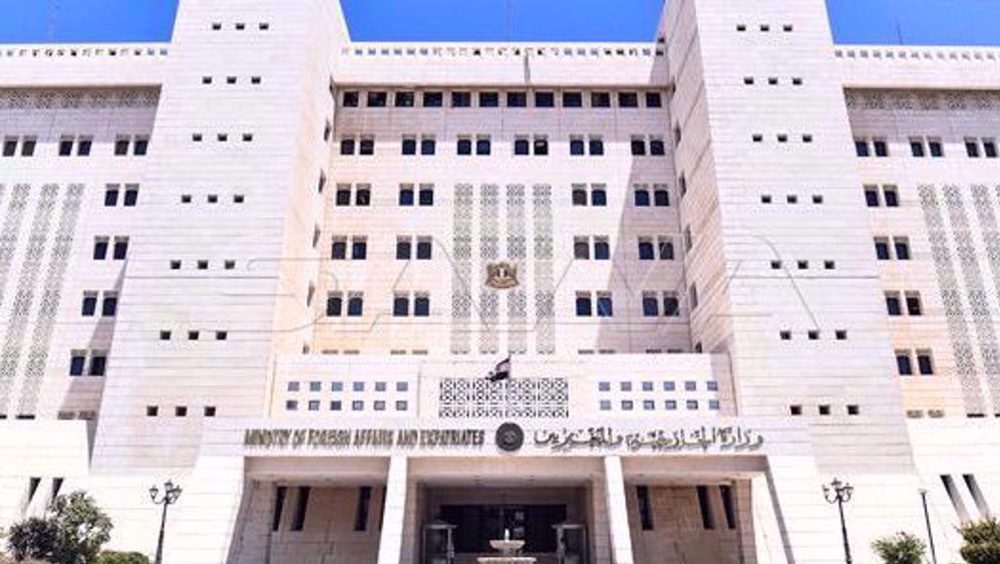'Hollywood has been demonizing Iran for years'
Ever since the 1979 Islamic Revolution in Iran, hawkish US officials have been involved in a massive campaign to demonize the Islamic Republic, but it appears there have been others contributing to the cause from an unlikely source -- Hollywood.
According to an article by The Washington Post, the US film industry has always looked for “villainous nations” to tempt vast crowds of moviegoers.
And it has been struggling to do so after the collapse of the Soviet Union and the end of the Cold War. The industry has had different targets from North Korea to Russia and China, but more importantly Iran.
“Hollywood has struggled to find villainous nations. North Korea is a cliche. Russia was, until recently, passe. China is a no-go; Hollywood wants to sell too much product there. Using fake or generic countries in a newsy modern climate is a non-starter.”
Following the Islamic Revolution, Hollywood looked out for stories that would portray Iran in an antagonistic way.
They depicted Iran as a country “bloodthirstily and monolithically interested in bringing down America,” according to the article.
Hollywood screenwriters tend to choose Iranians as “the villain,” in a bid to show that the country has “only radicals and bad actors.”
“Some of the stories are fictional, with Iranians chosen by screenwriters as the villain for little apparent reason. Even the fact-based tales tend to whitewash good Iranians.”
According to experts, these types of stories like the ones in the Showtime hit “Homeland,” the Oscar best-picture winner “Argo” and the Sally Field film drama “Not Without My Daughter,” have helped shape US public sentiment and even public policy.
“The portrayal that Hollywood has been putting out for a long time is that Iran is not just a place of bad leaders or regimes but a nation of terrorists, radicals and bad guys — that this is the entire culture,” Hooshang Amirahmadi, an Iranian American professor at Rutgers University, was quoted by the paper as saying.
“That’s poisoned how a lot of Americans think about Iran,” he noted.
Critics also say that some of Hollywood works “offer a portrait of Iranians that is inauthentic, reductive and even racist.”
In “Argo,” for instance, director Ben Affleck depicts how smart a US plan is in rescuing several Americans during the Islamic Revolution, but it shows the Iranian characters as fanatics willing to “harm North Americans behind a cloak of religious righteousness.”
In the Globe and Mail, commentator Jian Ghomeshi slammed “Argo” for a “deeply troubling portrayal of the Iranian people” and “an unbalanced depiction of an entire ethnic national group,” the paper wrote.
In the Guardian, Saeed Kamali Dehghan noted that “the film takes a black and white view towards Iranians … it portrays them as ugly, poor, strictly religious, fanatical and ignorant,” according to the Post.
“Homeland,” on the other hand, is a story about Iran agreeing to halt its uranium enrichment but only after senior US intelligence officials outmaneuver them. It leaves the impression that Americans want to act in an honorable way while Iranians are susceptible to duplicity.
In the 2007 blockbuster “300,” which shows a fictionalized version of the battle of Thermopylae, it is seen how a small band of Spartans heroically fight a large army of Persians. “The latter are shown to be barbaric and decadent.”
The movie provoked criticism from across the political spectrum in Iran as well as from select Western critics.
Experts argue that these movies among others have created “an environment ripe for targeting by US politicians.”
“When culture is created in this way it can have a very significant effect," Mehdi Semati, the chair of the communication department at Northern Illinois University and a close observer of Iranians in the US media, told the Post. “It basically prepares the public for any harsh policy the US might take. The more Iranians are shown as fanatics and men who brutalize women the easier it is for policymakers to do things like order strikes or increase sanctions.”
The Washington Post then cited filmmakers from the Middle East who believe that appealing directly to Hollywood may offer the most viable means of changing how the region in general, and Iran in particular, are viewed in the industry.
"When Farhadi won the Oscar in 2017, the director, boycotting the ceremony over President Trump’s travel ban, had a messenger at the ceremony read a statement about the dangers of pitting one side of the world against another," it added.
The struggles of Occupied Palestine
Ayatollah Khamenei exalts great Persian poet on Saadi Day
Iran’s Civil Defense examines country’s preparation for potential threats
FBI chief: Chinese hackers targeting critical US infrastructure
New York Times leaked memo on Gaza coverage reveals obfuscation of facts
VIDEO | Press TV's news headlines
Barbados officially announces recognition of Palestine as state
US Senate reauthorizes surveillance bill despite privacy concerns












 This makes it easy to access the Press TV website
This makes it easy to access the Press TV website